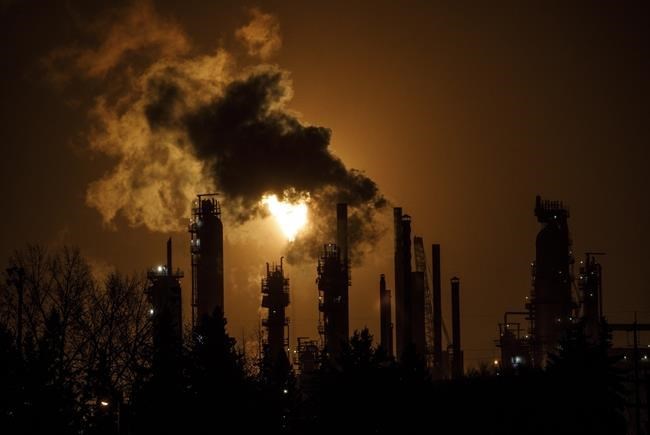CALGARY — An oil curtailment system set in place by the Alberta NDP in early 2019 and continued by the United Conservative Party government was successful in controlling oil output and boosting local crude prices, according to a new study.
But the report from the School of Public Policy at the University of Calgary also warns that the dampening effect on drilling in Alberta over the program's two-year run that ended in December could have longer term implications for production growth.
"While curtailing production had the desired result of raising Alberta oil prices and resolving the differential between local prices and the world benchmark, its ripple affects may well bGote felt in the longer term," the study notes.
"The research finds that fewer wells are being drilled and more wells are suspending production. Tradition dictates that when a well becomes inactive, it is rarely returned to a productive state."
The quota was designed to support prices in Alberta by better matching output to pipeline export capacity. It initially aimed for an 8.5 per cent cut to 3.56 million barrels a day, with a provision for excess quota room to be traded among eligible operators.
The study notes that the oil price in Alberta jumped 72 per cent to C$50.08 per barrel from C$29.09 within a week of the curtailment policy being announced by the NDP in December 2018, and rose again to a lesser extent when the system came into effect the following month.
It says total provincial production fell even when the quota was eventually relaxed, suggesting producers were also reacting to lower global oil prices and other market factors.
"We noticed that the quota was never binding. We don't see that the companies' production was right at the quota. It was much below," said Lucija Muehlenbachs, one of four study authors, in an interview.
She said it's difficult to say whether quotas should be used in future to deal with steep price discounts due to inadequate market access, pointing out that the resulting higher crude oil prices didn't benefit all energy market participants equally.
A study published last month by Jennifer Winter of the School of Public Policy and Brandon Schaufele of the Ivey Business School at Western University found that the quotas resulted in the transfer of "market surplus" from refiners, mainly those in the U.S. Midwest but also local refiners, to producers of heavy oil and bitumen in Alberta, including the government as owner of the resource.
It found that curtailment's creation of artificial scarcity increased producer net revenues by roughly $700 million per month, while buyers of Alberta heavy oil and bitumen surrendered revenue of about $825 million per month.
The curtailment plan was initially opposed by crude oil producers who also had refining operations such as Suncor Energy Inc. and Imperial Oil Ltd. but supported by pure oil producers such as Cenovus Energy Inc. and Canadian Natural Resources Ltd. (although both now have refining operations).
The study published Wednesday says initial fears that Alberta's lost production would be replaced with more output from Saskatchewan were not realized as Saskatchewan production also declined.
This report by The Canadian Press was first published March 31, 2021.
Companies in this story: (TSX:CVE, TSX:IMO, TSX:SU, TSX:CNQ)
Dan Healing, The Canadian Press



